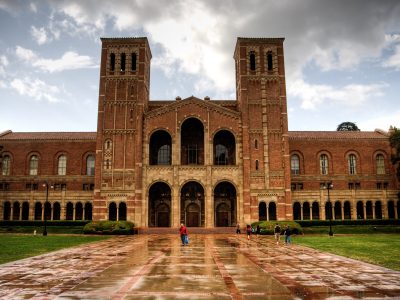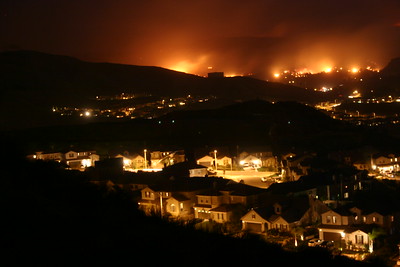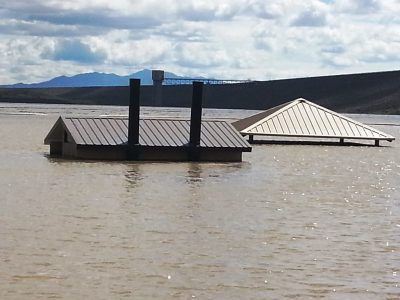California
Charting the Progress of the Latest Chapter in American Climate Change Litigation
State and Local Governments’ Common Law-Based Lawsuits Against the Energy Industry Are Steadily Gaining Traction
The latest chapter in American climate change litigation has been launched by local governments–and one state–across the U.S. against domestic and international fossil fuel companies. These lawsuits have been brought under one of the oldest and most venerable legal doctrines–state common law. They seek compensation from the energy industry for the myriad, adverse effects of …
Continue reading “Charting the Progress of the Latest Chapter in American Climate Change Litigation”
CONTINUE READINGPost-Madrid, China And California Have An Opportunity To Lead
As international climate action falters, the two climate leaders can fill the void
Note: this post is co-authored with Fan Dai, director of the University of California’s California-China Climate Institute. With the high-profile failure of last week’s UN climate conference in Madrid, the focus of international action on climate change will need to shift to political leaders of key global economies. We attended the conference in Madrid on …
Continue reading “Post-Madrid, China And California Have An Opportunity To Lead”
CONTINUE READINGThe Decade in Review
Like many humans, the Twenty-First Century’s teenage years were stormy.
“It was the best of times; it was the worst of times.” That pretty much sums up the ten years from January 2010 to January 2020. As the decade began, Barrack Obama was in the White House and the Democrats controlled Congress but were one vote short of a filibuster-proof majority in the House. Under …
Continue reading “The Decade in Review”
CONTINUE READINGMaking It Work: Administrative Reform of California’s Housing Framework
How recent legislative changes have been the state greater power to enable prohousing policies
This blog post is coauthored by Chris Elmendorf, Eric Biber, Paavo Monkkonen, and Moira O’Neill. As California’s housing crisis swirls through the national news, attention has focused on statewide upzoning bills. Sen. Scott Wiener’s ballyhooed effort to allow 4-5 story buildings near transit was tabled until 2020, but earlier this fall the legislature effectively terminated …
Continue reading “Making It Work: Administrative Reform of California’s Housing Framework”
CONTINUE READINGBless the Rains Down in Los Angeles
As a wet winter approaches, Los Angeles County focuses on initiatives to capture rainwater and reduce ocean runoff
(Note: I previously wrote a law review article published in 2016 in the Villanova Environmental Law Journal, accessible here, about related policy suggestions for improving rainwater capture in reference to the Sustainable Groundwater Management Act.) If you live in California, or have been in the state over the last couple weeks, you’ll know that we …
Continue reading “Bless the Rains Down in Los Angeles”
CONTINUE READINGNew Report: California Climate Risk and Insurance
UCLA & UC Berkeley Researchers Issue Report on Climate Change and Insurance in California
(This post is part of a series on the issue of climate change and insurance that my colleague Sean Hecht and I are writing, inspired by a symposium that the law schools co-organized with the California Department of Insurance earlier this year. You can find more information on the symposium here. My initial post is available …
Continue reading “New Report: California Climate Risk and Insurance”
CONTINUE READINGYes, It’s That Time of Year Again
If you read Legal Planet, you know why the work we do matters.
There couldn’t be a more important time for the work we do, given the urgency of the climate crisis and the ongoing policy disaster in D.C. Like everyone else, I’m sure you find fundraising appeals annoying. That’s why we hardly ever do them on Legal Planet. But twice a year doesn’t seem like too much …
Continue reading “Yes, It’s That Time of Year Again”
CONTINUE READINGThings to Be Thankful For
Despite the Trump Administration’s efforts, there are rays of hope.
Three years into the Trump Administration, we’re now accustomed to waking up every morning to learn about a new attack on the environment. But there are also some things to be thankful for. Here’s how I started a similar post in 2017, just a year after the 2016 election: “Overall, it’s been a pretty lousy …
Continue reading “Things to Be Thankful For”
CONTINUE READINGHow Does Increasing Wildfire Risk Affect Insurance in California?
Affordability and Availability of Wildfire Insurance Are Less Stable Under Changing Conditions
(This post is part of a series on the issue of climate change and insurance that my colleague Ted Lamm and I are writing, inspired by a symposium that the law schools co-organized with the California Department of Insurance earlier this year. You can find more information on the symposium here. Ted’s prior related post …
Continue reading “How Does Increasing Wildfire Risk Affect Insurance in California?”
CONTINUE READINGClimate Change and the Insurance Sector: An Overview
The Insurance Industry Grapples With Changing Risks in a Changing Climate
(This post is part of a series on the issue of climate change and insurance that my colleague Ted Lamm and I are writing, inspired by a symposium that the law schools co-organized with the California Department of Insurance earlier this year. You can find more information on the symposium here. Ted’s prior related post …
Continue reading “Climate Change and the Insurance Sector: An Overview”
CONTINUE READING










